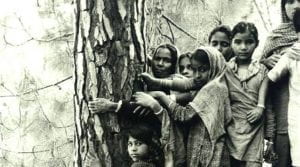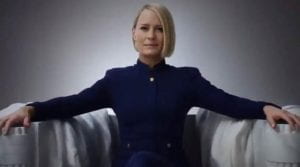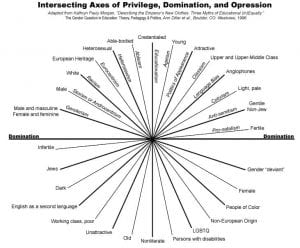As mentioned numerous times throughout these blog post the relationship between the oppression of both women and nature can be found to have a strong correlation. But for those who have taken a statistics class know that correlation does not mean causation. Meaning that just because one group is being oppressed does not mean that this is the cause of the other being oppressed. I think the relationship between the two oppressed stems much further than just women and nature, but all people in these marginalized groups. For instance, when reading about the village of Recife, whos poor literally swim in a sea of garbage, the problem here is one of narrow mindedness and lack of empathy. The first problem begins at what is culturally accepted norms in Brazil, a canal filled with garbage indicates that society has very little concern over care for other living species, living in an individualistic mindset. The people who pollute the most are the once that can afford to, or are in control of some sort of production of goods where the firm’s main goal is profit maximization. For me, it is very hard to blame the firm entirely for the garbage disasters in Recife, or in other instances of polluting. Yes, they are very responsible for doing what they do, especially if it is done in such a way that it is done in a deceiving, secretive way. Often times, when companies pollute as they do, it is because of lax government regulation or worse lack of intervention and prosection. The firm simply exists to produce a product and make as much profit as possible, employing people and generally improving lives even if it is at a marginal rate. The other problem is the cultural acceptance to allow littering a polluting, this stems from a lack of cultural awareness of what is taking place or care for that matter, many individuals looking out for themselves instead of the nation as a whole. This way of thought is justifiable in some aspects as well, after all, if one does not look after themselves and those close to them it is highly unlikely that someone else will. They look out for only themselves and have little regard for the harm they may leave behind, never looking back to see who has to swim in their trash. Some may ask why don’t those who are forced to swim in the filth just clean it up and give themselves a clean space? The same attitude applies as before, they are forced to focus solely on themselves and their close ones. Being impoverished gives these people even less opportunity, money, and time to make substantial changes in their lives or environment. The people that live in the slums of Brazil, African villages, or other poor rural areas are mainly focused on one thing, survival, eating as many days and meals as possible, drinking clean water, keeping themselves warm and protect. Where they stand they have to be so focused on the simple aspects of survival they have little time or excess resources to partake in a large community and environmental changes. At the same time for those living in the garbage they absolutely don’t wish to live like they, but they are too poor to move, little resources for massive cleanups, and feel as if they should not be responsible for cleaning the mess made by other all of which are valid reasons.
So how do groups like the village outside of Recife improve their lives? For one being raised in America, the thought of the purpose of government should be to represent the opinion of the majority of the country, while protecting the rights of the minority. The government should recognize the risk that they are putting their own countrymen at, a situation such as these are great displays of the first problem associated with the government. Without even looking into the laws or current political climate of Brazil it is clear that there is a problem, either they do not have laws in place to prevent frivolous polluting or they simply do not care when it happens. This lack of concern or jurisdiction can be a factor of many problems, corruption being one of the larger reason corporations are often allowed to proceed with heinous acts like massive pollution. This lack of representation often puts those who are in the minority at risk, but not necessarily in harm’s way until the people in charge allow things to happen to them. This disconcern demonstrates the lack of empathy amongst not only Brazilians but more times than not all over the world progressive and advanced countries included, as stuff like this still happens in some of the richest most political level countries on Earth. The oppression of women and nature are rooted in similar issues, people lack empathy for others, even when groups gather together for righteousness many times they are only looking at their own opinion, reasoning, facts, and group. The government or culture is unaccepting of change and progression, the lack of women representation in government is not the reason why governments allow for the degradation of environmental structure but rather the government’s inability to accept new ideas, people, and ideas that may disrupt their current course or agendas.
What really got my attention was the article about The Chipko movement. What I gained about reading this is the ability for the citizens to gain the government’s attention and the increased level of empathy for neighbors and the general environment. They realized the importance of the forest area that surrounded them and were thought that increased commercial activity in the area although spawning economic growth could lead to the destruction of the beautiful country. Some fo the reason why the movement was successful was because of the ability of the people to come together and think about one another, even if they weren’t directly going to be impacted. The other factor was the ability of the government to not only accept changes, but also put aside potential personal gains, and put the protection of what may be considered a minority first. The government heard the concerns of its citizens and put their need for protection over the profit of the industry. People were willing to put themselves at risk to protect what they believed to benefit many not only themselves, and due to a responsive government change in policy was possible.

*Chipko women standing together, in front of a forest in a demonstration to protect it from degradation*.
This same kind of idea is possible in African countries if they listen to those who are actually in the field and become accepting of ideas that may not have come from their own group or against the societal norm. “Throughout Africa (as in much of the world) women hold primary responsibility for tilling the fields, deciding what to plant, nurturing the crops, and harvesting the food. They are the first to become aware of environmental damage that harms agricultural production: if the well goes dry, they are the ones concerned about finding new sources of water and those who must walk long distances to fetch it.” (Maathai). These are the people that have direct access to what is going on in their everyday environment long before impact become so devasting that it kills a large portion of people. The importance of group thinking, and coming together is exemplified in these movements, but can often fall short if the government is so corrupted or unresponsive that nothing is done. Without proper representation for people from different sects of life, the issues are often left by the wayside, and ideas are missed. Although it is not these women’s job to clean the environment or be political activist, the best way to protect themselves and their futures is to come together, standing as one to help make clear what they are standing for, not backing down at the first sign of adversity, and the government actually listening and coming to the aid of unjustly impacted by whatever problem they may be facing.



